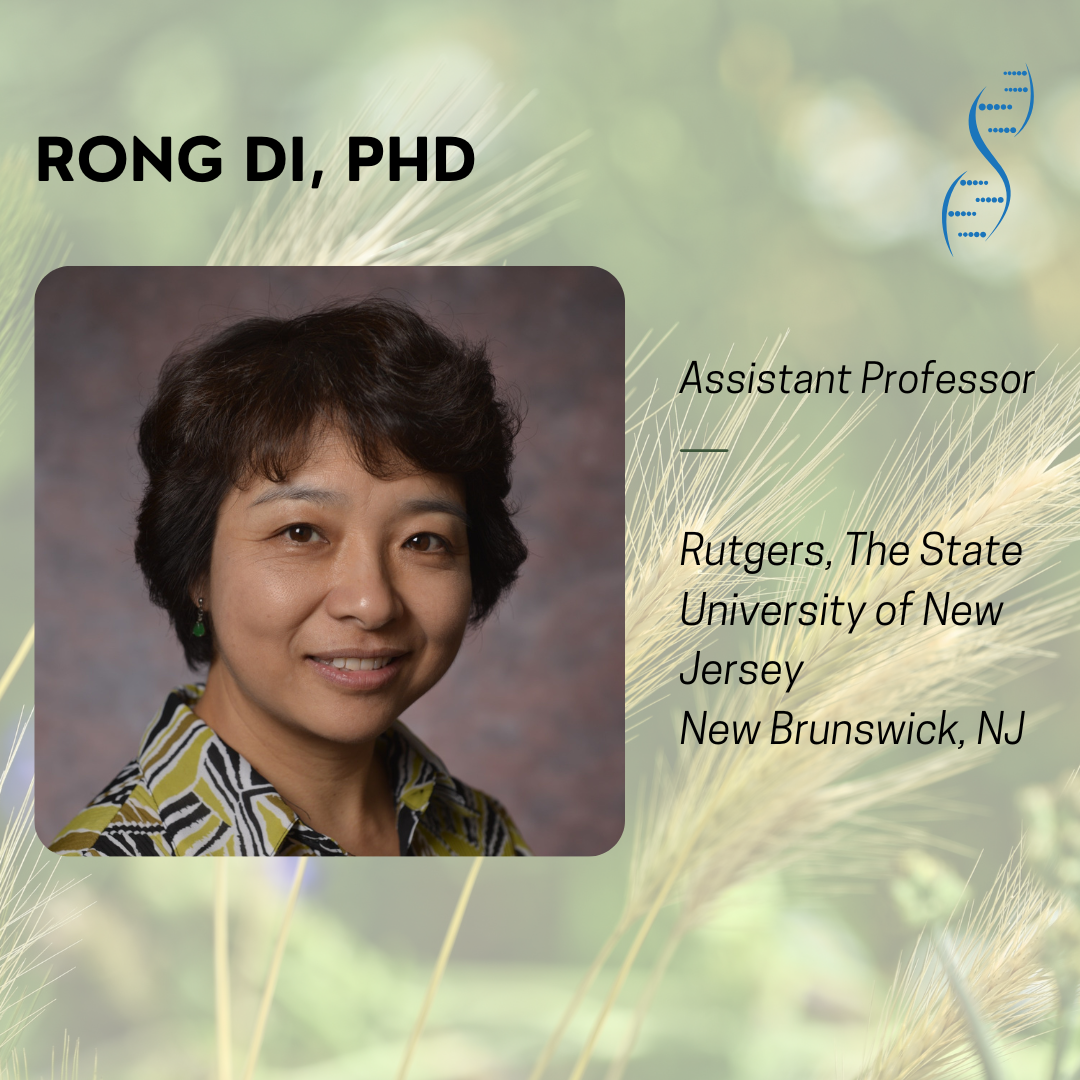Featured Researcher Bio - Rong Di 2025

Meet Rong Di, an assistant professor in the Department of Plant Biology at Rutgers, The State University of New Jersey, where she leads a lab focused on plant biotechnology. Di also has been leading the barley transformation lab for the USWBSI since 2018, where she accepts requests from barley researchers to develop tissue culture, transformation, and regeneration protocols for their chosen barley cultivar or to insert a gene into one of the three cultivars her lab has successfully transformed.
Engineering a Career in Plants
Di grew up in China. She obtained her bachelor of science degree in plant protection and studied both plant pathology and entomology. She moved to the U.S. to complete her master of science degree at Iowa State University in plant virology. During this time, she was studying monoclonal antibodies to analyze the serotypes of cowpea severe mosaic virus when she heard seminars on the production of transgenic BT maize to resist the corn borer and the production of virus coated protein-transgenic plants to resist virus infection. Di was fascinated with the mechanisms behind plant transformation and realized that it could be used to improve a plant’s innate immunity. It was then that she decided plant biotechnology was the field she wanted to be in. After completing her M.S. degree, she went on to earn a doctorate degree in molecular virology and took classes in plant tissue culture along the way to provide herself the knowledge she needed to genetically engineer plants.
Developing Effective GE Tools
Di started working on engineering wheat for FHB resistance in 2003. In 2018, she added a focus on genetically engineering barley for FHB resistance which she continues to do through the establishment of the Barley Transformation Lab for the USWBSI. Di believes that Fusarium graminearum will continue to change, and with global warming causing climate change, she anticipates the fungus will keep spreading and causing FHB. As a result, she is invested in the potential of using biotechnology as an effective tool to aid breeders in developing FHB resistant wheat and barley cultivars.
Cultivating New Discoveries
When working to create something that’s genetically engineered, it’s important to educate the general public to better understand and gain acceptance of new biotech-crops. That’s one reason why Di believes the National Fusarium Head Blight Forum is so important. She values this once-a-year opportunity for researchers to gather together, hear and learn from one another on new discoveries, and meet in-person. “It’s important to continue to learn and work as hard as you can,” said Di.
Building a Barley Genetic Engineering Facility for the FHB Research Community
Attendees of the 2024 National Fusarium Head Blight Forum in Austin, Texas, had the opportunity to learn more about Di’s research during her presentation. If you are a PI with the USWBSI and have an FHB gene you’d like transformed into a barley cultivar, learn more on the USWBSI Transformation Labs website or complete a Barley Transformation Submission Form to get started.
For more information about Dr. Rong Di's research, visit her faculty profile.
To learn more about others in the FHB community, check out all the previous USWBSI Featured Researchers/Advocates.
